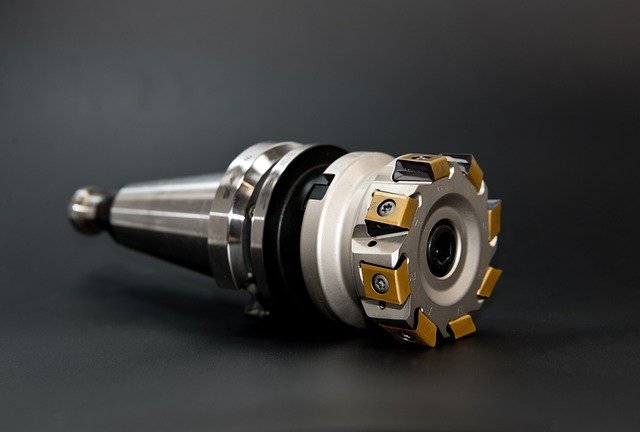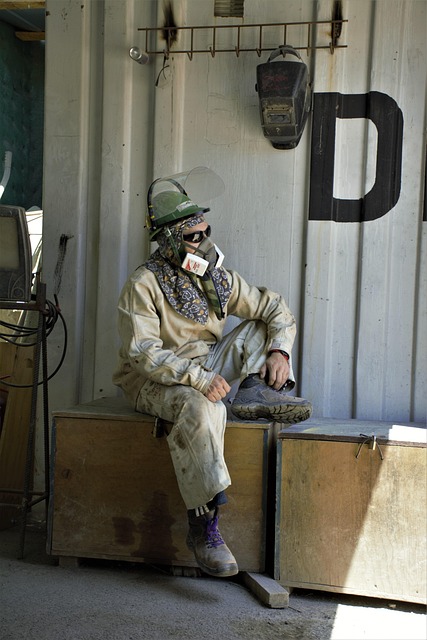Explore welding training opportunities in Munich
For those residing in Munich, welding training offers a path to exciting career prospects. This program requires no prior experience or specialized training and opens the door to positions in dynamic fields such as welding and metal fabrication. The training prepares participants for work in a variety of manufacturing and welding companies.

Opportunities in the welding manufacturing industry
The welding manufacturing industry in Munich presents substantial career possibilities across multiple sectors. The city hosts several major automotive manufacturers and aerospace companies, all requiring skilled welders for their production facilities. BMW’s headquarters and manufacturing plant, located in Munich, regularly recruits qualified welders for specialized automotive component fabrication. Similarly, aerospace giant MTU Aero Engines maintains significant operations in the region, offering opportunities for welders trained in precision techniques.
Munich’s industrial landscape extends beyond automotive and aerospace to include construction, railway infrastructure, and energy sectors—all employing welders with varying specializations. The city’s proximity to other manufacturing hubs in Bavaria creates a robust job market where skilled welders can command competitive salaries. According to industry data, experienced welders in Munich can earn between €40,000 and €60,000 annually, depending on specialization and certification level.
Training programs designed for different skill levels
Munich offers welding training programs tailored to accommodate various experience levels and career goals. For beginners, the dual education system provides a foundational path combining classroom instruction with practical experience. These apprenticeships typically span 3-3.5 years and cover comprehensive welding fundamentals while earning a modest salary during training.
For those seeking more concentrated training, Munich’s vocational schools (Berufsschulen) offer accelerated programs ranging from 6 months to 2 years. These programs focus on specific welding processes such as MIG, TIG, or stick welding, with curricula designed to meet industry standards. The Chamber of Crafts for Munich and Upper Bavaria (Handwerkskammer für München und Oberbayern) coordinates many of these programs, ensuring they align with current industry requirements.
Advanced welders can pursue specialized certification courses at technical institutes like the SLV München (Schweißtechnische Lehr- und Versuchsanstalt). These institutions provide high-level training in specialized techniques such as underwater welding, high-pressure pipeline welding, or exotic material welding, opening doors to niche sectors with premium compensation.
Start your career in metal fabrication with comprehensive training
Beginning a career in metal fabrication requires understanding the various training pathways available in Munich. The traditional apprenticeship route remains popular, where students alternate between vocational school attendance and practical training at partner companies. This approach provides both theoretical knowledge and hands-on experience while establishing valuable industry connections.
Several private welding schools in Munich offer flexible programs with evening and weekend classes for those transitioning from other careers. These schools typically provide more personalized attention with smaller class sizes and focused skill development. The GSI SLV Munich Technical Education Center stands out for its internationally recognized certifications that comply with both German and European standards.
Many training facilities in Munich feature state-of-the-art equipment that simulates real-world welding conditions. This includes virtual welding simulators that allow students to practice techniques without material waste, followed by application on actual projects. Such comprehensive training ensures graduates possess both theoretical understanding and practical proficiency necessary for immediate employment.
Certification and qualification standards in Munich
Welding certifications in Munich adhere to rigorous German and European standards, making them highly valued throughout the industry. The most common qualification framework follows the EN ISO 9606 standards, which classify welders according to welding process, material type, and joint configuration. These certifications require periodic renewal, typically every two or three years, to ensure practitioners maintain current skills.
The German Welding Society (DVS) oversees many certification programs in Munich, providing standardized testing and documentation recognized throughout Germany and the European Union. For international recognition, many training centers also offer certifications aligned with American Welding Society (AWS) standards, increasing global employability for graduates.
Beyond technical certifications, many Munich-based training programs incorporate safety protocols and quality control methodologies aligned with ISO standards. This comprehensive approach ensures welders understand not just how to weld, but how to maintain quality and safety throughout the fabrication process.
Leading welding training providers in Munich
Munich hosts several established institutions that provide welding training with varying specializations and program structures. Each offers unique advantages depending on your career objectives and learning preferences.
| Training Provider | Program Focus | Duration | Key Features |
|---|---|---|---|
| SLV München | Comprehensive welding technology | 6-24 months | International certification, advanced techniques |
| Handwerkskammer München | Dual apprenticeship | 3-3.5 years | Combined classroom and workplace learning |
| TÜV SÜD Akademie | Specialized certifications | 2-12 weeks | Industry-specific qualifications, flexible scheduling |
| GSI SLV München | Advanced welding technologies | 3-18 months | Research-based curriculum, cutting-edge equipment |
| Schweißtechnisches Bildungszentrum | Basic to intermediate training | 3-12 months | Focus on practical applications, job placement assistance |
Prices, rates, or cost estimates mentioned in this article are based on the latest available information but may change over time. Independent research is advised before making financial decisions.
Industry connections and employment prospects
Munich’s welding training programs maintain strong relationships with local industry partners, facilitating smooth transitions from education to employment. Many programs incorporate internships or work placements with companies like MAN Truck & Bus, Krauss-Maffei, or Siemens Energy, often leading to job offers upon completion.
The Munich Employment Agency (Agentur für Arbeit München) provides additional resources for welders seeking employment, including job fairs specifically targeting manufacturing and skilled trades. For those interested in entrepreneurship, the Chamber of Crafts offers guidance on establishing independent welding businesses, including necessary certifications and business registration requirements.
With Germany’s strong manufacturing sector and emphasis on quality craftsmanship, trained welders from Munich programs find themselves well-positioned in the job market. The city’s central European location also provides access to opportunities throughout Germany and neighboring countries, particularly for those with internationally recognized certifications.




